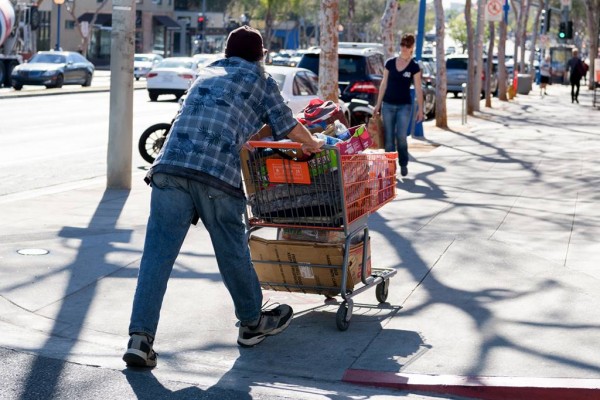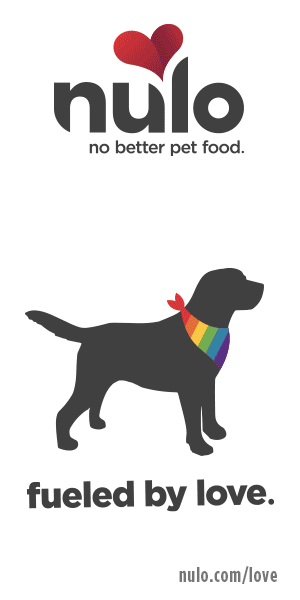Skid Row homeless able to keep property as L.A. pays $645,000 in settlement
LOS ANGELES (CNS) – The city of Los Angeles will not be allowed to
remove property of homeless people in a designated area of Skid Row and
will pay $645,000 under a lawsuit settlement finalized Wednesday in
federal court.
The City Council voted 12-2 last Friday to settle the case, Carl Mitchell v. Los Angeles, with Councilmen Joe Buscaino and Jose Huizar dissenting.
“We see [the settlement] as an important step toward actually securing our goals of ensuring there is housing for everyone,” said Pete White, executive director of the Los Angeles Community Action Network, which was a plaintiff in the suit along with Los Angeles Catholic Worker and three individuals.
White said although he was pleased with the outcome, but doesn’t necessarily see the settlement as a “win,” at least not yet.
“The ultimate `win’ is when we are approaching the issues as a public health crisis … and humanitarian issue, and I think that we’ll begin moving in the correct direction when we see our resources allocated toward things that house people,” White said. “The settlement protects not just [the homeless population’s] property, but all Angelinos’ resources.”
White said although he wants to see the city’s resources protected, entering litigation was a last resort to protect the property of the people he represents, calling it a 14th Amendment issue.
Buscaino, in a statement released this afternoon, said the settlement “will only perpetuate the public health crisis that already exists in Skid Row and will set a precedent for the rest of the city that will normalize encampments.”
“The city is sending a clear signal that we are turning the sidewalks in Skid Row into free, unlimited public storage, doing a disservice to the residents of Los Angeles, especially to those living on the streets,” the councilman said.
Huizar also voiced his displeasure with the settlement agreement.
“I am opposed to the cat-and-mouse game the city and these same litigants continue to play, which will have a detrimental effect on setting sound homelessness policy for the city of Los Angeles,” Huizar said in a prepared statement. “The city continues to set policy as a reaction to individual and ongoing lawsuits rather than agreeing to a comprehensive settlement with a multitude of litigants that will move us forward in a proactive path in helping us address our homelessness crisis.”
Per the settlement, the city for three years must let people know both 24 hours and 30 minutes before a cleanup is to take place and must not seize property of those who choose to reside on the streets within the borders of Second Street to the north, Eighth Street to the south, Spring Street to the west and Alameda Street to the east. The city will also not be allowed to conduct cleanups when it is colder than 50 degrees outside or when it’s raining.
Large items, such as couches, mattresses, dressers, or other similarly- sized or larger furniture and cooking appliances of more than a few pounds and open-flame devices are still prohibited. The city is still able to remove items that are deemed abandoned, present an immediate threat to public health or safety, are crime evidence or contraband.
Property that is seized under the belief that the item isn’t considered contraband or criminal evidence will be held for 90 days for people to recover.
The settlement funds are to be used to pay damages claimed in the suit, as well as the defendants’ attorneys fees and associated costs.
Los Angeles has long struggled with how to clean up and regulate homeless encampments and in 2016 passed a law limiting the amount of belongings a homeless person can store on the sidewalk to 60 gallons. But in response to the lawsuit, a federal judge issued an injunction barring Los Angeles police and sanitation officers from seizing and destroying homeless people’s property in and near Skid Row. U.S. District Judge S. James Otero’s injunction also ordered the city to segregate and store impounded belongings where they can be recovered.
The increased regulation has led to an escalation in the size of homeless encampments on Skid Row, where thousands of homeless people congregate.
Buscaino pointed to the federal court ruling as being partly responsible for a typhus outbreak at City Hall earlier this year, since it has led to a significant increase in homeless encampments in downtown.
“That injunction is prohibiting our outreach workers from getting to our most vulnerable homeless population in and around the downtown area. So rats are a symbol of this injunction,” Buscaino said in voting against a settlement along with Huizar, who represents the Skid Row area.
The City Council voted 12-2 last Friday to settle the case, Carl Mitchell v. Los Angeles, with Councilmen Joe Buscaino and Jose Huizar dissenting.
“We see [the settlement] as an important step toward actually securing our goals of ensuring there is housing for everyone,” said Pete White, executive director of the Los Angeles Community Action Network, which was a plaintiff in the suit along with Los Angeles Catholic Worker and three individuals.
White said although he was pleased with the outcome, but doesn’t necessarily see the settlement as a “win,” at least not yet.
“The ultimate `win’ is when we are approaching the issues as a public health crisis … and humanitarian issue, and I think that we’ll begin moving in the correct direction when we see our resources allocated toward things that house people,” White said. “The settlement protects not just [the homeless population’s] property, but all Angelinos’ resources.”
White said although he wants to see the city’s resources protected, entering litigation was a last resort to protect the property of the people he represents, calling it a 14th Amendment issue.
Buscaino, in a statement released this afternoon, said the settlement “will only perpetuate the public health crisis that already exists in Skid Row and will set a precedent for the rest of the city that will normalize encampments.”
“The city is sending a clear signal that we are turning the sidewalks in Skid Row into free, unlimited public storage, doing a disservice to the residents of Los Angeles, especially to those living on the streets,” the councilman said.
Huizar also voiced his displeasure with the settlement agreement.
“I am opposed to the cat-and-mouse game the city and these same litigants continue to play, which will have a detrimental effect on setting sound homelessness policy for the city of Los Angeles,” Huizar said in a prepared statement. “The city continues to set policy as a reaction to individual and ongoing lawsuits rather than agreeing to a comprehensive settlement with a multitude of litigants that will move us forward in a proactive path in helping us address our homelessness crisis.”
Per the settlement, the city for three years must let people know both 24 hours and 30 minutes before a cleanup is to take place and must not seize property of those who choose to reside on the streets within the borders of Second Street to the north, Eighth Street to the south, Spring Street to the west and Alameda Street to the east. The city will also not be allowed to conduct cleanups when it is colder than 50 degrees outside or when it’s raining.
Large items, such as couches, mattresses, dressers, or other similarly- sized or larger furniture and cooking appliances of more than a few pounds and open-flame devices are still prohibited. The city is still able to remove items that are deemed abandoned, present an immediate threat to public health or safety, are crime evidence or contraband.
Property that is seized under the belief that the item isn’t considered contraband or criminal evidence will be held for 90 days for people to recover.
The settlement funds are to be used to pay damages claimed in the suit, as well as the defendants’ attorneys fees and associated costs.
Los Angeles has long struggled with how to clean up and regulate homeless encampments and in 2016 passed a law limiting the amount of belongings a homeless person can store on the sidewalk to 60 gallons. But in response to the lawsuit, a federal judge issued an injunction barring Los Angeles police and sanitation officers from seizing and destroying homeless people’s property in and near Skid Row. U.S. District Judge S. James Otero’s injunction also ordered the city to segregate and store impounded belongings where they can be recovered.
The increased regulation has led to an escalation in the size of homeless encampments on Skid Row, where thousands of homeless people congregate.
Buscaino pointed to the federal court ruling as being partly responsible for a typhus outbreak at City Hall earlier this year, since it has led to a significant increase in homeless encampments in downtown.
“That injunction is prohibiting our outreach workers from getting to our most vulnerable homeless population in and around the downtown area. So rats are a symbol of this injunction,” Buscaino said in voting against a settlement along with Huizar, who represents the Skid Row area.

 Homeless person on Santa Monica Boulevard. (Photo by Jon Viscott)
Homeless person on Santa Monica Boulevard. (Photo by Jon Viscott)



